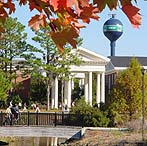








|
MUN FAQ
*Content of this page is provided on the UNA-USA website.
Q: What is Model United Nations?
A:
Model United Nations, an authentic simulation of the U.N. General
Assembly and other multilateral bodies, catapults students into the
world of diplomacy and negotiation.
Q: What is a Model United Nations delegate?
A:
A Model U.N. delegate is a student who assumes the role of an
ambassador to the United Nations at a Model U.N. event. A Model U.N.
delegate does not have to have experience in international relations.
Anyon can participae in Model U.N., so long as they have the ambition
to learn something new, and to work with people to try and make a
difference in the world. Model U.N. students tend to go on to become
great leaders in politics, law, business, education and even medicine.
Q: Why should I participate in Model United Nations?
A:
You should participate in Model U.N. because it promotes student and
teacher interest in international relations and related subjects,
increases the capacity for students to engage in problem solving,
teaches aspects of conflict resolution, research skills, and
communication skills, and creates the opportunity to meet new people
and make new friends.
Model UN offers opportunities for anyone
who wants to learn about the processes of international diplomacy. Each
country represented at a conference needs a diverse delegation to be
successful. To succeed the delegation will need to have followers as
well as leaders, researchers to determine a national policy, writers to
convey the country's position and speakers to present and support that
position to the body.
Model UN is not a program just for
International Affairs or Political Science students. The broad nature
of the skills learned cut across nearly all majors and it is valuable
for any major if the student has an interest in the functions of
international negotiation and policy-making.
MUN conferences
Q: What is Model U.N. Conference?
A:
Some Model U.N. exercises take place in the classroom and others are
school wide. On top of that others are regional, national, or even
international. These are called conferences, and the events are much
larger, with participants from all over the United States and the
world. More than 1,000,000 people have participated in MUN conferences
around the world since the conferences became popular over 50 years
ago. Today there are more than 400 conferences that take place in 35
countries. Depending on the location, the average conference can have
as few as 30 students or as many as 2,000.
Q: What do delegates do at MUN conferences?
A:
At MUN conferences, delegates represent the country of their choice in
an authentic simulation of the UN General Assembly and other
multilateral bodies. In successfully representing a country the
delegates' conduct extensive research prior to the conference on
country information, the topics at hand, and general UN information and
procedures. Moreover, the delegates are required to create position
papers prior to the conference. Position papers are essential to
successful preparation as it helps to organize ideas and provides a
concise review of your country's foreign policy. At the conference,
delegates represent their country in the various committees that it
presides within the United Nations. Conference procedures are divided
amongst two types of discussions: formal and informal debate. At the
conclusion of the conference prizes are awarded to worthy participants.
| 
Latest News
- UNCW
MUNA will be attending the Virginia International Committee Simulation
(VICS) at the University of Virginia, 03/27-03/30
|



